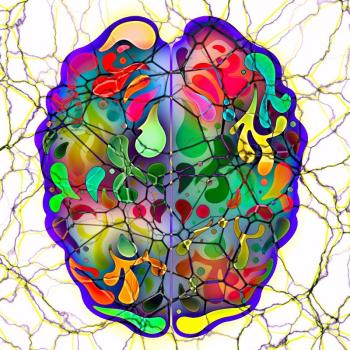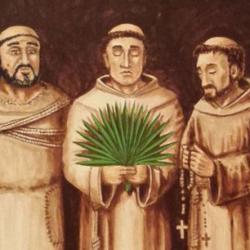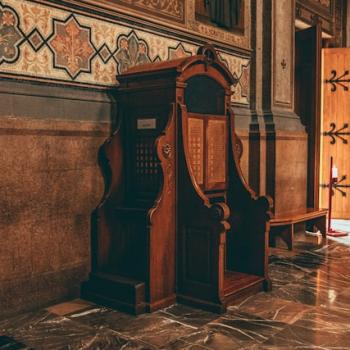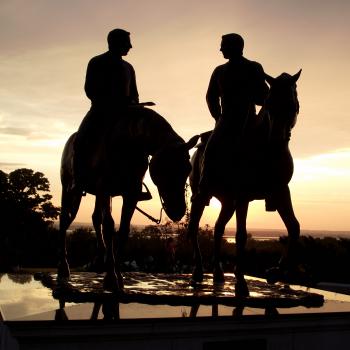The social teachings of Baha’u’llah truly resonated with the impassioned youth of the late sixties. The ideas that we needed to eliminate the extremes of wealth and poverty, and that education was the key to mining the potential of the human race, had been heard before—but never posited as spiritual truths and religious teachings and applied so universally. Certainly others over the centuries had spoken of racial harmony, women’s equality, social justice and education—but no one ever explored these ideas as a divine revelation, incorporated in religious faith and a greater service to the world, a revelation that had been given to help guide humanity to its inevitable spiritual maturation.
What Baha’u’llah offered was a cause, a mission, a new way of seeing the world and changing it. It wasn’t simply “another religion.”
For the unwashed, peace-loving, lost souls gathered together to hear Mr. Samandari speak, the idea that there was, in fact, only one religion made total sense. Baha’u’llah’s proclamation that he was the latest, most recent, divine teacher or prophet truly resonated with those particular open-minded misfits. He wrote at great length about how he was the most recent messenger from God in a great linked chain of special, luminous souls that included Krishna, Abraham, Buddha, Moses, Jesus and Muhammad. He spoke about the fact that all religions are actually ONE religion, ever-updated, refreshed, renewed. He called religion “The Changeless Faith of God, Eternal in the past, eternal in the future.” He said that God wanted humanity to progress spiritually and had always sent teachers to help with its maturation—and that there would be more of these messengers, like him, like Jesus, that would continue to come in the future.
But back to the hippie house. We sang songs, I’m sure of it. Jerry Lew was probably there, a sweet, long-haired Chinese hippie intellectual who always carried a guitar. I remember his song from when I was a child, lyrics taken directly from the writings of Baha’u’llah and sung with tremendous atonal gusto: “Glory not in this that you love your Country. Glory rather in this that you love mankind! Unity. That’s how the world must be!” In the Baha’i world singing and music are an integral part of celebration, prayer and congregation.
Try to picture, in this milieu, a tiny, beloved, nonagenarian Baha’i from a farming village in Persia, who had hung out with the prophet and founder of this rapidly-spreading religious movement. Visualize it if you can: this donkey rider, calligrapher, world traveler, radiant speaker, is sitting in a chair at my parents’ house, holding fat baby me in his miniscule lap and speaking in effusive Farsi about Baha’u’llah, the Glory of God, his son translating.
Draped on the window sills and radiators and cushions and floor are dozens of bohemians, like I said, people who regularly used the words “deep” and “groovy,” people who still believed (before we became as cynical as we are today) that world peace was possible. They were packed into my parents’ crowded house, listening raptly, drinking in everything that remarkable man said, flabbergasted, all young idealists who had probably never been in a room with a Middle-Easterner before—people who had probably never even tasted hummus.
Perhaps they thought they were coming to see some kind of guru. He was most definitely not one of those. He had no following, accepted no money, wrote no books or treatises, and in no way sought to draw attention to himself, his story or personal philosophy—but instead always directed his attention and praise to the person and revelation of Baha’u’llah.
My parents later spoke to me (when I was of speaking age) about spending time with such a saintly, radiant personage, and told me about one aspect of him that truly touches my heart. This man, this tiny man, this man with so many titles and names and honors, this man who has travelled the world, met with religious leaders and dignitaries, heads of state and countless well-known Baha’is, this man who is revered wherever he goes, looked up to by so many and lauded in so many ways—how does he act, this man?
This man is the most humble person you’d ever want to meet. My dad relayed to me that even when the great unwashed of Seattle’s university district were coming to hear him speak, no matter what the questions people asked of him, how ridiculous, offbeat, or how specific to that time period in American cultural history, that Mr. Samandari treated every single person with the utmost respect and dignity. He treated no person differently. He showed zero signs of self-importance, but moved through the world as a humble servant.
Mr. Samandari wrote in a short essay about his memories of Baha’u’llah; about having the honor and privilege of being present while he revealed holy writings and tablets. Think about it, a man describing first hand, divine revelation moving through a sanctified human vessel, a messenger. He described the scene in 1892 in Akka, Palestine, as follows:




